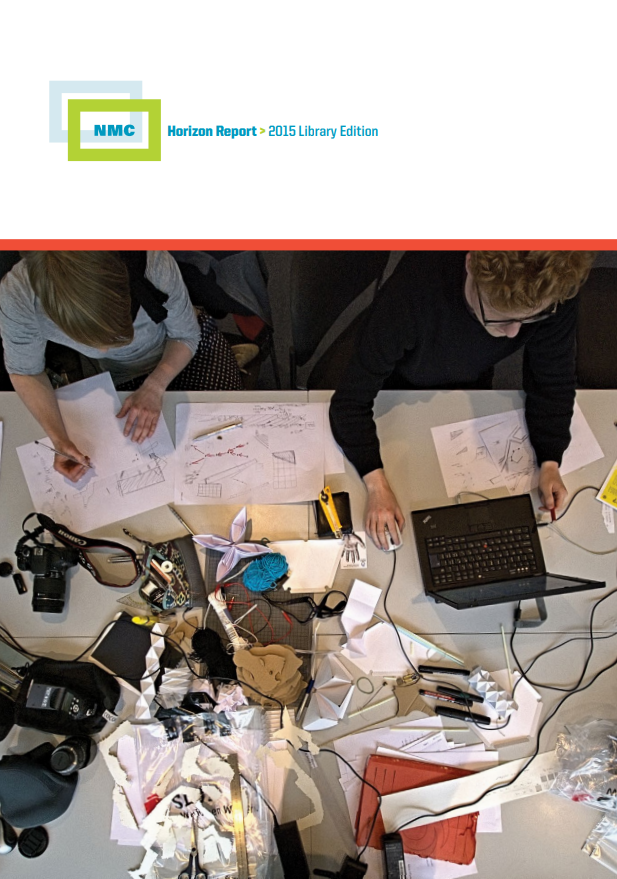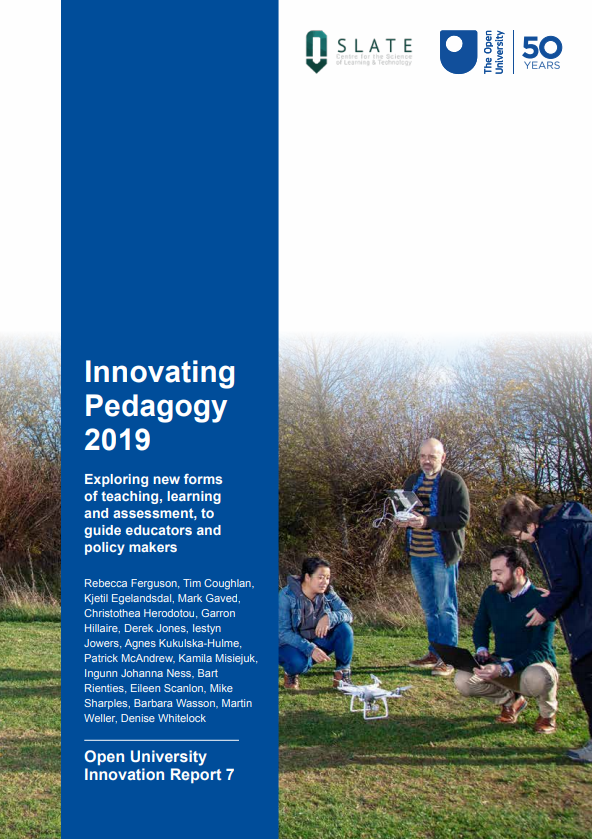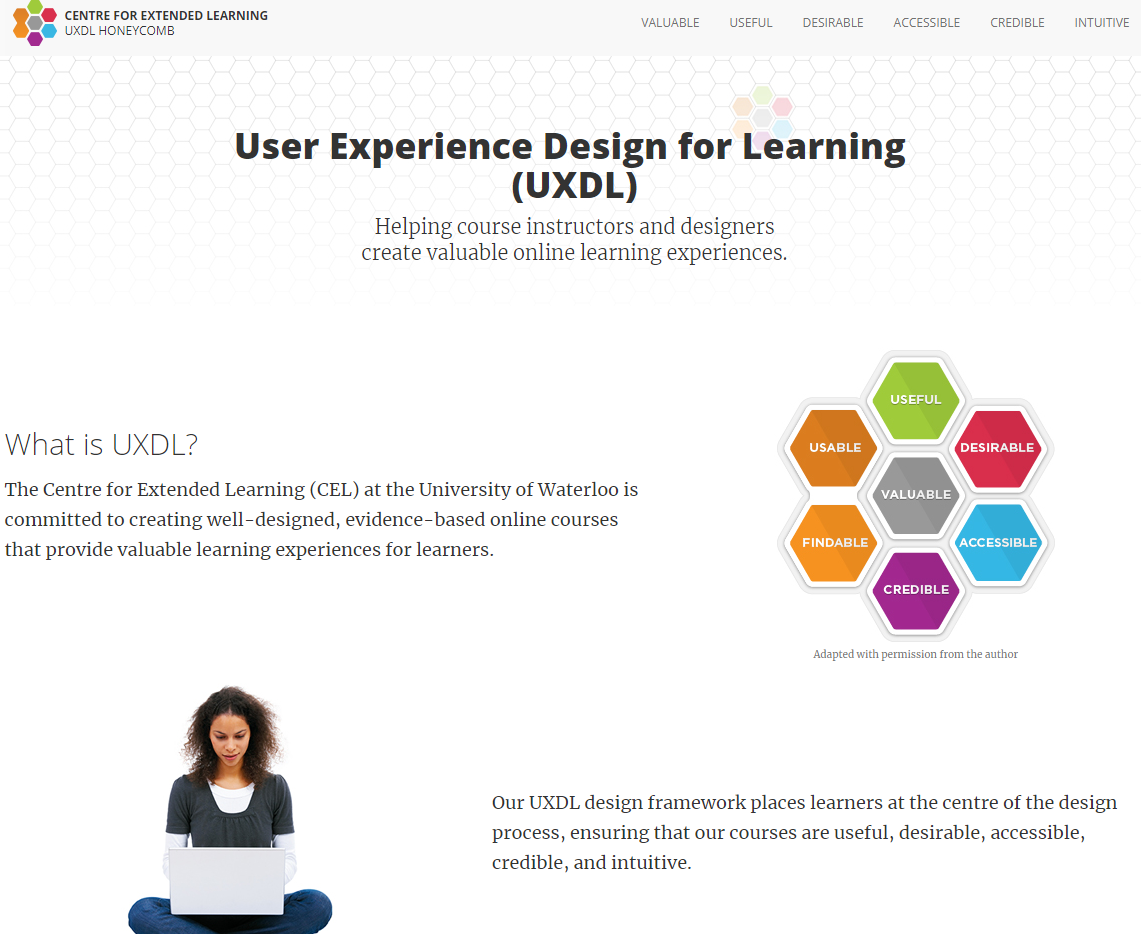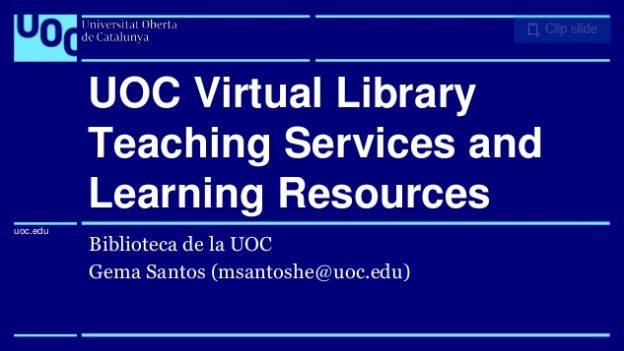Curriculum & Course Design
Curriculum and Course Design
INTRODUCTION
The expertise that we offer in the area of curriculum development and course design is focused on processes, methodologies and resources. Our aim is to “empower” educators and learners to participate in design discourse and practices in technology-enhanced learning.
Meet our experts on curriculum development and course design
Lourdes Guàrdia, Universitat Oberta de Catalunya (UOC) [CHAIR]
Deputy dean of teaching at Psychology and Educational Sciences Department at UOC. She is an associate professor of Educational Technology. She teaches courses in the Master in Education and ICT (e-learning).
Researcher of the Edul@b research group (UOC). She has participated in numerous European projects like the recent H2020 CRISS selected for publication on the EU’s Innovation Radar platform (leading WP3) and H2020 EPICA (leading WP4) recognized as a distinctive innovation being published in the EMPOWER Envisioning report of 2020 (4th Edition), but also in national research projects funded by the Ministry of education, currently e-Feedskills project. Her research focuses on eAssessment, ePortfolios, educational technologies, teaching professional development, including such topics as learning design methods and tools, emerging digital pedagogies, schools innovation, personalized learning, course and program design, and open education.
Within the E-SLP project, she has coordinated and participated together with Marcelo Maina and Sandrine Albert in the development of the Compendium of good practices and the Design guidelines for flexible and scalable SLPs.
PhD in Educational Sciences at Basic Country University (UPV/EHU).
Postgraduate program in teaching Second Language Acquisition (University of Barcelona)
Slavi Stoyanov, Open University of the Netherlands (OUNL)
Slavi Stoyanov, PhD in instructional technology of the University of Twente, is currently with the faculty of Educational Sciences, the department of Technology-Enhanced Learning Innovation of Open University of The Netherlands. His research interests include design for learning, individual differences in learning, and technology-enhanced learning. Slavi Stoyanov is a recognised expert in Group Concept Mapping research methodology. He contributed with papers to the first and second editions of The Envisioning Report, namely: ‘Designing MOOC: a shared view on didactical principles’ and ‘Model-driven design for learning with learning analytics’.
Alfonso Herrero de Egaña Espinosa de los Monteros, Universidad Nacional de Educación a Distancia (UNED)
PhD in Economic and Business Sciences from the Complutense University of Madrid (outstanding "cum laude"). Accredited as a Profesor Colaborador (ANECA) and Profesor Contratado Doctor (ACAP), he has been a professor at different universities since leaving the private company. Since 2000 he has worked at UNED, is currently coordinator of the subject Mathematics II (Business Degree), Game Theory (Postgraduate of Research in Economics) and directs three postgraduate courses in Lifelong Training. He is the author of articles in international journals, books on calculus, finance and stock exchange, has directed doctoral theses and has participated for twelve years in various teaching innovation projects funded by the European Commission.
Experience in Curriculum Development and Course Design
Lifelong Training postgraduate courses at UNED developed and designed by Alfonso Herrero de Egaña whom is or has been director and teacher in all of the below-mentioned postgraduate courses.
Master's Degree in Stock Markets and Financial Derivatives. Since year 2000 to present.
Master of Arts in Economics. Since year 2004 to present.
Master's degree in Business Valuation and Analysis. Course offered in alternate years since 2019.
Master’s degree in Financial Engineering. Course offered in alternate years since 2017
Course in Entrepreneurship. Course offered until 2018.
Contributions to Empower Activities:
- Organizational innovation & competitive enterprise university model. The Envisioning Report For Empowering Universities. 1 St edition 2017.
- The Entrepreneurial University. The Envisioning Report For Empowering Universities. 2 nd edition 2018
Inma Alvarez, Open University of the United Kingdom (OUUK)
Inma is the Director of Postgraduate Research Studies in the Faculty of Wellbeing, Education and Language Studies at the Open University in the United Kingdom. I am also a Senior Fellow of the Higher Education Academy in the UK. I have over 30 years' experience teaching Modern Languages and Dance courses at higher education institutions in the USA, UK, and Spain. I have contributed to the development of face-to-face, blended, and distance learning programmes at undergraduate and postgraduate levels. I have extensive experience designing print, audio-visual and online materials for formal contexts, as well as Open Educational Resources for informal learners. I have also been leading teacher and supervisor training programmes to support the effective delivery of the curriculum via innovative learning environments. I have been involved in many scholarly and research projects, including the development of electronic portfolios for adults and an integrated approach to curriculum design to foster students employability.
Articles she contributed to:
- Alvarez, Inma., Fuertes Gutiérrez, Mara. and Bárkányi, Zsuzsanna. (2020) Supporting the teaching of pronunciation in the language curriculum. in Ubachs, George (ed.) The Envisioning Report for Empowering Universities (4th Edition). Maastricht, The Netherlands, European Association of Distance Teaching Universities, pp.12-14.
- Lindsay, Hilary. and Alvarez, Inma. (2019) A Framework for the development of Researching Professionals. in Ubachs, George (ed.) The Envisioning Report for Empowering Universities (3rd Edition). Maastricht, The Netherlands, European Association of Distance Teaching Universities, pp.35-37.
- Álvarez, Inma (2018). A learning-centred blended model for professional doctorates. In: Ubachs, George and Konings, Lizzie eds. The Envisioning Report for Empowering Universities. Maastricht, The Netherlands: European Association of Distance Teaching Universities, pp. 34–36.
ELLEN RUSMAN, OPEN UNIVERSITY OF THE NETHERLANDS (OUNL)
Dr. Ellen Rusman is an Associate Professor at the faculty of Educational sciences – the faculty of education and research on learning, teaching, and technology of the Open University of the Netherlands. She is an expert in (seamless) learning design, networked learning, and technology-enhanced learning. From August 2019 till January 2020 she fulfilled the role of program leader (ad interim) of the Technology Enhanced Learning and Innovation (TELI) research group. She currently heads the group on Mobile & Seamless Learning design. A common thread in her work is connecting people and their experiences in different (learning) contexts through (mobile) technology, so that learning knowledge and skills becomes more meaningful, appropriate, fun, effective, and efficient. She has broad experience in acquiring, working on, and leading large national and international TELI design research projects. She won the Dutch national Best research and practice award 2019 with the Viewbrics-project, in which an (online) method to acquire complex skills supported by video-enhanced rubrics was developed and studied. She is a fellow of ICO and SIKS research schools in the Netherlands and has published extensively in international journals. She gained several awards and prices, both with her scientific work (e.g. best paper/presentation awards), as well with (research) project outcomes (e.g. European Language Label and Nuffic Orange Carpet Award with ELENA, a mobile game-based scenario for supporting early language learners). In her projects, Ellen loves to work closely with different stakeholders, e.g. teachers, learners (students, pupils), and employers. She highly values and balances both the scientific as well as the practical relevance of initiated projects.
Ellen contributed to the EMPOWER network both via the visionary report as well as through webinars in the thematic weeks:
- Rusman, E. (2020). Mobile and Seamless learning design: support of continuous learning processes in (higher) distance education. Webinar during the EMPOWER Blended and online education week, 7-9 April, 2020. Available online: https://www.slideshare.net/EADTU/seamless-learning-empower-by-ellen-rusman and https://empower-new.eadtu.eu/events/repository
- Rusman, E. (2018). Viewbrics: mirroring and mastering complex generic skills with video enhanced rubrics through a technology-enhanced formative assessment methodology. Webinar during the EMPOWER e-Assessment week. Available online: https://www.slideshare.net/EADTU/empower-eassessment-week-viewbrics and https://empower-new.eadtu.eu/events/repository
- Bidarra, J., & Rusman, E. (2017). Key Pedagogical and Technological Factors for Effective Blended Learning Design. In: G. Ubachs, L. Konings (2017). The Envisioning Report for Empowering Universities, EMPOWER/EADTU/Erasmus+. Heerlen: EADTU.
ALESSANDRO CAFORIO, INTERNATIONAL TELEMATIC UNIVERSITY (UNINETTUNO)
ELLEN RUSMAN, OPEN UNIVERSITY OF THE NETHERLANDS (OUNL)
MIGUEL SANTAMARIA LANCHO, UNIVERSIDAD NACIONAL DE EDUCACIÓN A DISTANCIA (UNED)
SASKIA BRAND-GRUWEL, OPEN UNIVERSITY OF THE NETHERLANDS (OUNL)
EMPOWER offers
Our team of experts offer experience and know-how in curriculum development and course design for teachers, instructional designers/learning designers and educational technologists working in online or blended environments. The expertise we offer in this area is focused on processes, methodologies and resources to “empower” educators and learners to participate in design discourse and practices in technology-enhanced learning.
In our approach, the role of technology is to support the implementation of new modes of teaching and learning experiences and to enrich existing learning scenarios. We also aim to help teachers to experiment, to innovate and to be reflective practitioners in these new educational scenarios supported by ICT.
We take a broad definition of curriculum development and course design to include:
- Programme modularity and design-based competence;
- Knowledge about the influence of advanced technologies, team-based design, and management skills;
- Basic domain of educational design foundations, as well as planning and analysis, design and development, and implementation and management skills (learning design models for online and blended scenarios);
- The design of synchronous and asynchronous activities (face-to-face, online, both);
- Educational approach (self-study and self-paced, resource-based learning; supported by tutors, activity-based learning, collaborative learning…);
- Learning activities (PBL, CBL, RP, GBL, …) and assessment (formative and summative) supported by ICT;
- Roles of teachers, tutors and mentors;
- Personalisation and flexibility;
- Interactivity and provision of feedback;
- Course materials and educational resources (learning materials, OER, tailored…);
- Scaling (from the course to the program, a large number of students);
- From informal to formal learning;
- The course delivery, technical infrastructure and virtual learning environment;
- The coherence between assessment methods (online and blended) and learning outcomes;
- Academic community development (communication, research involvement, link to the professional world…);
- Knowledge and skills (transferable skills, professional and vocational…);
- Evaluation (course design process and course impact) .
We also promote the use of learning analytics to enable us to use data to improve the design process for teachers and learning designers. Learning analytics does this by informing learning designers and teachers of common misconceptions and of what works well and what doesn’t.



 ">
">